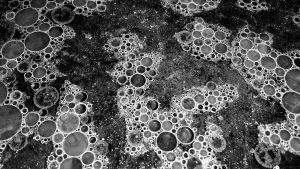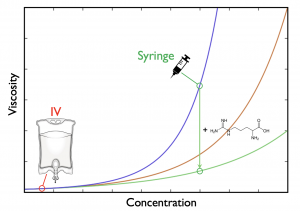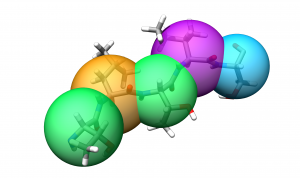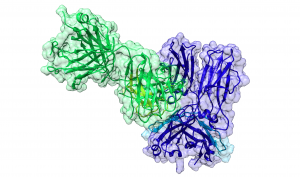Research
Biology is a finely-tuned machine composed of many complex processes work together. Proteins, or more generally, biomolecules are fundamental units of life, and can be thought of as tiny machines in a factory. Most of the time, these biomolecules need to coordinate their efforts in order to function properly, thus making the interactions between biomolecules just as important as the molecules themselves, if not more so. The goal of my lab is to contribute to the understanding of how biomolecules interact, with different affinity (strength), specificity, and selectivity, and how each may be beneficial to different functions carried out in biology.
Even further along this line, we also want to leverage what is already known to design the future of biotechnology. This means taking inspiration from life, which is already a highly-optimized system, and building new technology.
Research Directions
Biomolecular phase separation

Much like oil and water do not mix, many biomolecules are able to separate into a distinct liquid-like (or non-liquid-like) phase. This occurs both in cells, and in the lab. Depending on strength and number of interactions between molecules, the materials properties of these condensed phases can vary drastically. By understanding this relationship, we hope to design new condensation-prone systems to accomplish tasks in biotechnology and chemistry.
Drug formulations

The drug formulation problem deals with high-concentration bio-based therapeutic drugs, which commonly exhibit problematic behaviors such as high viscosity, aggregation and phase separation. A huge question is how to select an ideal stabilizer (also called an excipient), an additive that disrupts interactions at the molecular scale, and helps alleviate these problematic behaviors.
Computational methods

Computational tools are incredibly valuable for the study of proteins and protein interactions. We plan to develop tools such as coarse-grained models, and enhanced sampling techniques which enable us to study larger and more complex systems.
Protein interactions

A fundamental unit of biology is the protein interaction. Protein structure (or lack thereof) is related to its interactions with one or more partners. Our goal is to understand the effect of regulating stabilizer molecules on protein interactions with other proteins and nucleic acids.